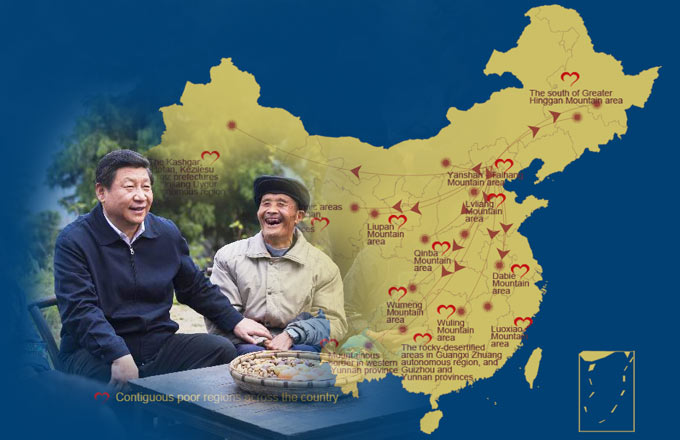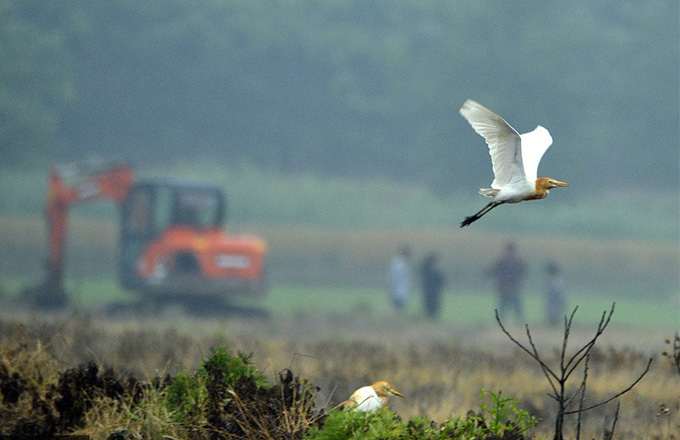Big data helps poverty-relief in Chinese villages
 |
|
The China International Big Data Industry Expo 2017 in Guiyang, Southwest China's Guizhou province, on May 25, 2017. [Photo by Zhang Jie/chinadaily.com.cn] |
GUIYANG — Yang Jilin stands in front of a modern machine on the third floor of the village office and types his name to check if the government subsidies have been allocated.
"In the past, we did not know when and how much subsidies were given out," said Yang, 53. "But now with the data machine, everything is clear."
Yang is a resident of Shanbao village, Tongzi county. The village is tucked away in the boundless mountains of Southwest China's Guizhou province, a place known for its grinding poverty. The government has allocated poverty-relief subsidies to cash-strapped villagers, as the country plans to lift 10 million people out of poverty each year from 2016 to 2020 to become a "moderately prosperous society."
To make sure the subsidies are properly distributed instead of being eaten by corrupt officials, the disciplinary commission of Tongzi introduced a data supervising platform last year, which includes details of public policies and subsidies, as well as a monitoring system, a warning system regarding government funds, and a feedback system handling public complaints. The platform gives terminals all villages in the county, like the one in Yang uses.
"With the platform, I can see my subsidies anytime I want," Yang said.
China is encouraging the development of big data, with the country's first big data engineering laboratory launched in Guizhou province last week to help improve government management efficiency. Guizhou is the country's first pilot zone for big data. The technology is being widely applied in government management, business and daily life.
"Big data really helps make poverty-relief more precise and efficient," said Zhou Xing, an agriculture expert with the poverty-relief office of Guizhou province.
Guizhou started using big data for precise poverty-relief in 2015, when a cloud computing platform was developed, which tracks and manages the financial status of more than 6 million poor residents across 9,000 villages. It also tracks 1.23 million residents lifted from poverty since the end of 2014.
"Before the introduction of big data, poverty relief work was difficult because the information of residents was written by hand and passed to central authorities via a series of local officials, which could be hampered by corruption," said Zhou Xing. "The hand-writing process was also very time-consuming."
With big data, everything is stored in an electronic system and can be accessed quickly, a much easier process. Besides, a supervising team checks the data in random villages to prevent corruption.
In the provinces of Hubei, Hunan and Sichuan, as well as Guangxi Zhuang autonomous region, big data plays an increasingly important role.
In 2016, for example, a big data system in Hubei caught officials embezzling public funds. The authorities confiscated 2.3 million yuan ($335,600).
"Tight supervision is needed to make sure poverty relief work is conducted properly," said an official of the Hubei provincial disciplinary watchdog.

























